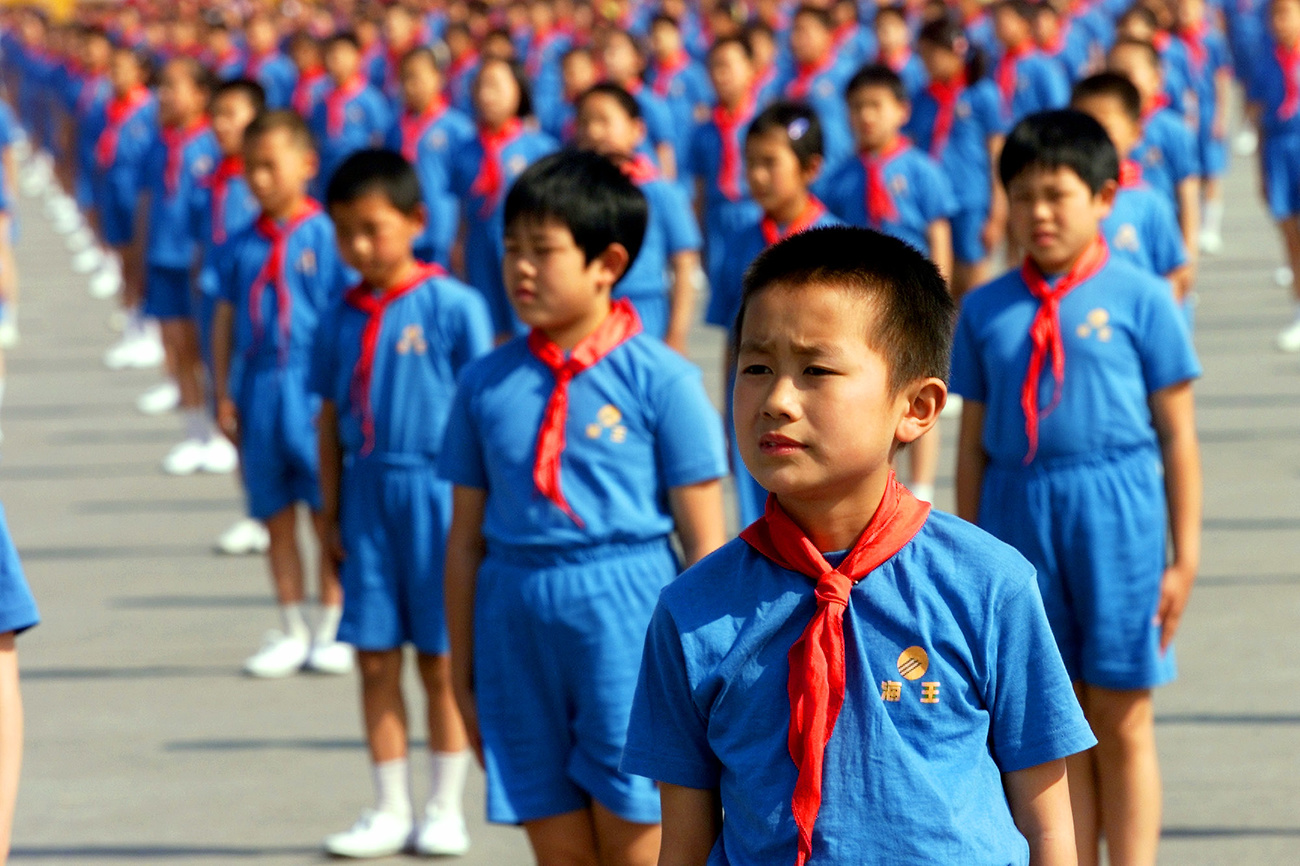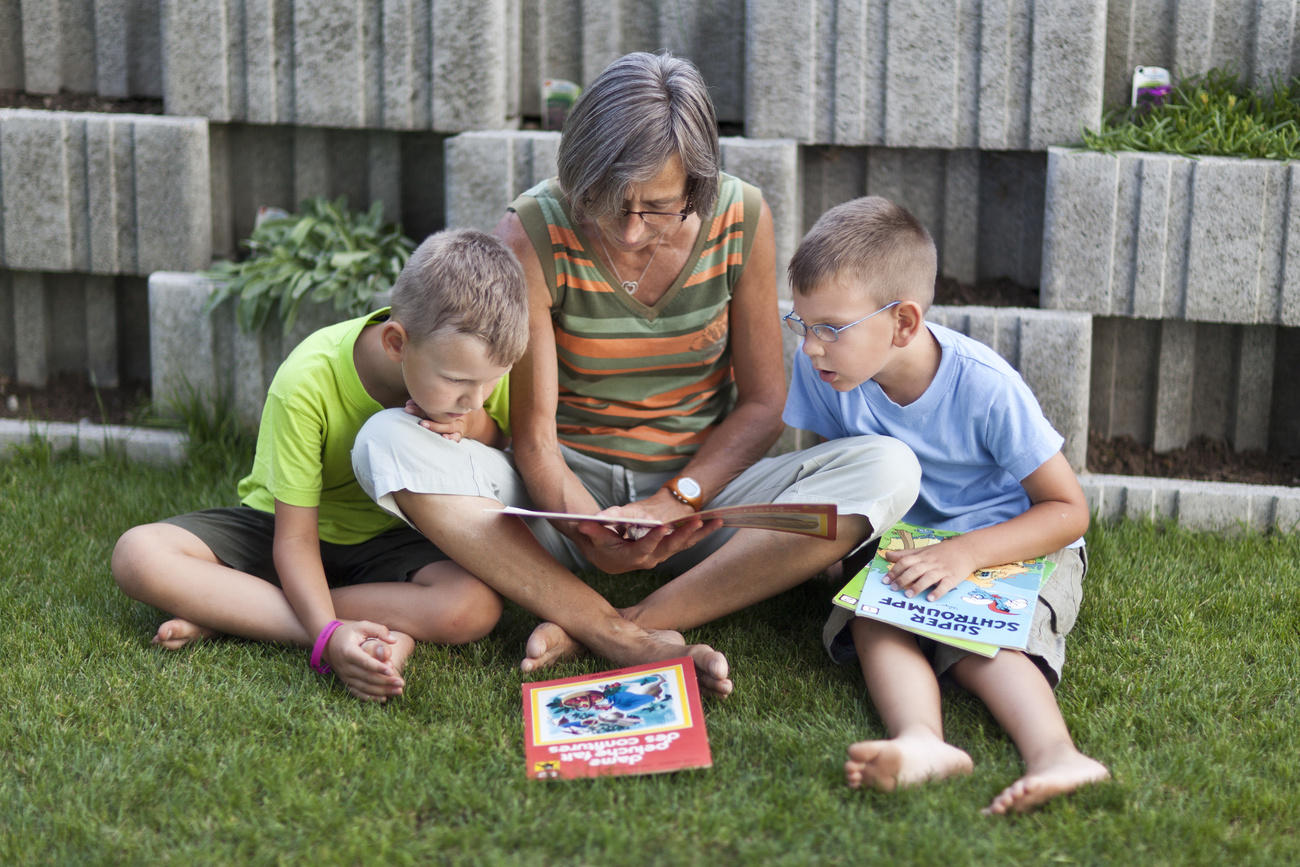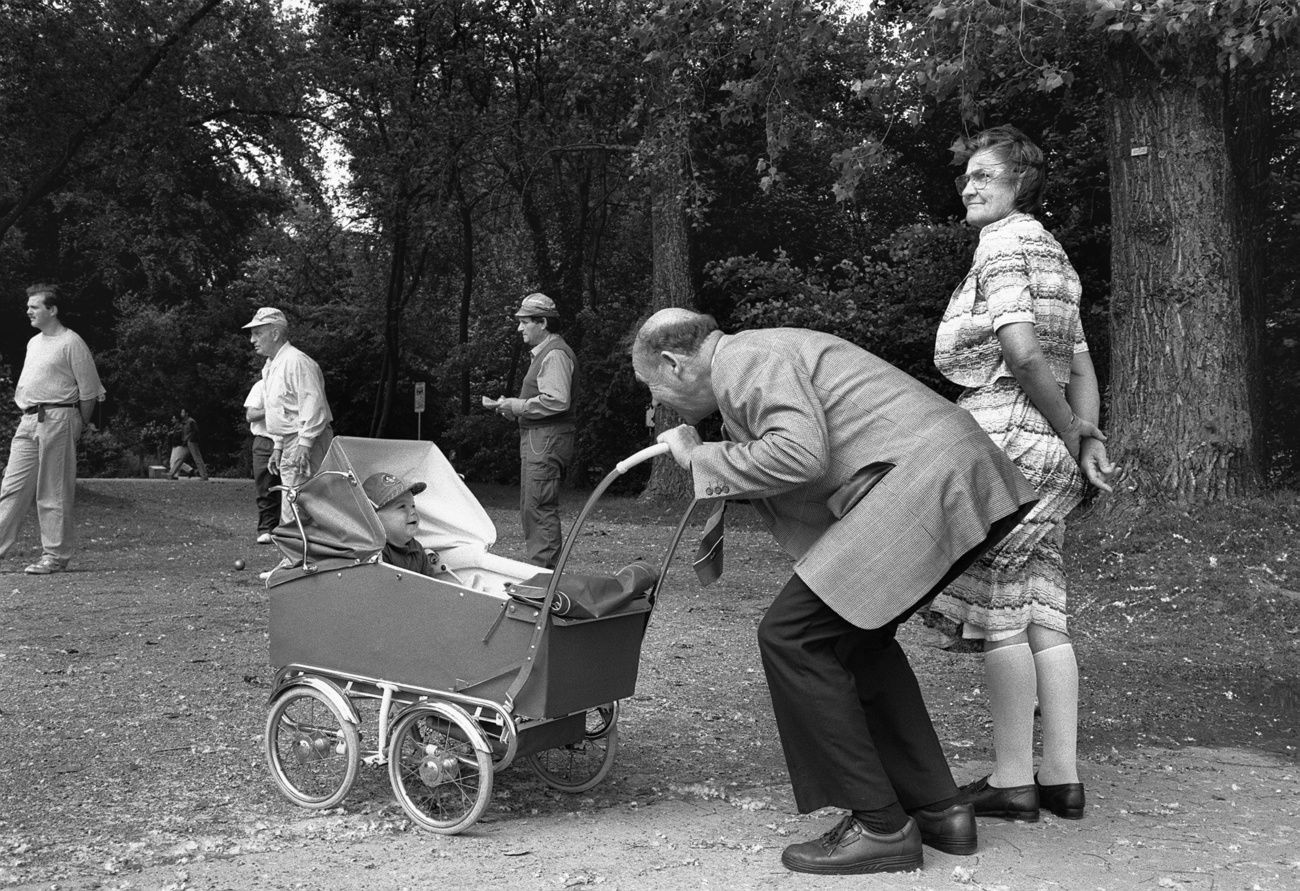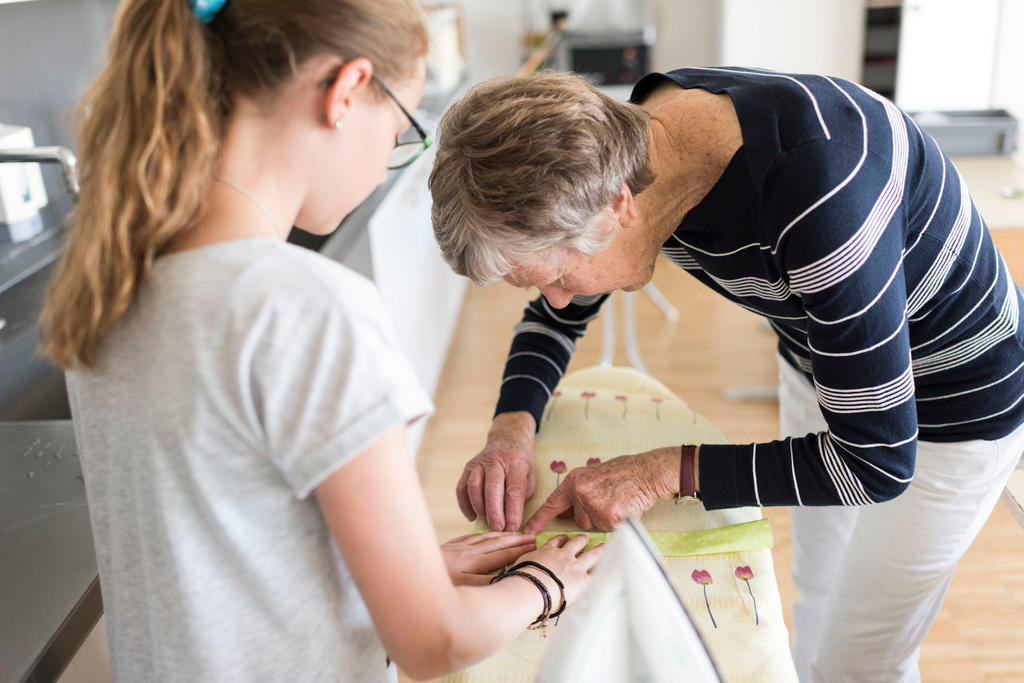Old and sad: what if I never become a grandparent?

Fewer and fewer people in Switzerland are having children, often by choice. But for those who have no say in the matter, that decision can lead to heartache. So say seniors who would like to have grandchildren but don’t get any.
Daniel* was taken aback by the comment. He and his mother were in the middle of an argument, he can’t even remember the reason. Suddenly she burst out angrily, “And I won’t have any grandchildren either!” Daniel is in his mid-thirties, an only child, and until that moment he had shown no interest in producing offspring. It became clear during this argument that this was a big concern for his mother.
An unfulfilled wish for grandchildren hurts. More and more people in Switzerland will feel the same way as Daniel’s mother in the coming years. The steadily declining birth rate means the chance of having grandchildren is also dwindling. According to the Federal Statistical Office, the birth rate dropped to an average of 1.39 children per woman in 2022. By way of comparison, in 1964 during the so-called baby boomer years, the birth rate was 2.68. The last time women in Switzerland had an average of two children was in 1971. Since then, the statistical value has always been lower. To ensure a stable population, a birth rate of 2.1 children would be needed today, excluding immigration.
Switzerland is not alone with these numbers. Many countries in Europe are facing a future with fewer children. In 2015, a Danish campaign encouraging more births made headlines across Europe. Together with a travel agency, the Danish government produced a video promoting holidays that would increase the desire to produce babies. However, the campaign was not only aimed at couples, but specifically at older women whose wish for a grandchild had not been fulfilled. “Do it for Mom”, is the slogan. The video features sad women sitting alone on the sofa who later become jubilant grandmothers. Children not only ensure the continuity of the state, but also make the senior citizens happy.
The desire to become a grandparent can be very strong. “For today’s generation of grandparents, the family is the ideal life model,” says Jeannine Hess, head of the master’s degree in social work programme and lecturer at the Zurich University of Applied Sciences. “Children are part of their personal concept of life and the norm. They had children themselves and therefore they expect to have grandchildren.”
Peter Burri Follath, media spokesperson for Pro Senectute, concurs. “The vast majority of current senior citizens have given birth to children themselves and would naturally like to see this happen for their children as well,” he says.
The wish for grandchildren is also independent of gender, albeit focusing on different reasons. “For women, nurturing a family has often been a topic throughout their lives, something they would like to continue in old age. But at this stage of life, men are more likely to ask themselves what inheritance they will leave behind and what their legacy will be, also in the form of grandchildren,” says Hess. In addition, men often put gainful employment first. “With grandchildren, they have another chance to be involved in the family and to see children grow up.”
Childlessness strains family relations
If one’s own children cannot have offspring because of their circumstances or for medical reasons, there is usually a certain amount of understanding. But children who consciously choose not to have their own children can be a great source of frustration for the deprived grandparents. “It can trigger a feeling of powerlessness,” says Hess. The hidden and open expectations can also strain the relationship with the children. Unlike in the video of the Danish campaign, parents usually do not have very much influence on their children’s plans to start a family.
“Basically, childlessness is an area of great tension,” says Hess. She believes that in the future more and more Swiss will consciously decide against having children. The number of people without grandchildren will also therefore increase.
Childlessness is a touchy subject across all generations, something that became apparent during research for this article. It was hard to find anyone willing to talk about their own experiences. One senior citizens’ association even declined to ask its members to share their experiences. The image of happy grandparents, on the other hand, is omnipresent, as for example in advertising.
China’s shrinking population
All over the world, older people long for grandchildren. But the chances of becoming a grandparent are not the same everywhere. Due to China’s long-standing one-child policy, all hope often rests on one pair of shoulders. Dr Jia* is lucky. Her daughter, her only child, wants to have her own children. The 57-year-old Chinese woman, who lives in the Bern region and works as a doctor, is happy about that. Her daughter’s grandfather in China also wants his granddaughter to start a family soon. People her age already have children and now he is worried that it might take too long for his granddaughter.
In January China published figures showing that it has experienced a population decline. Despite introducing a two-child policy in 2016, the number of births has dropped sharply. “In urban areas, it is no longer uncommon to refrain from having children,” says Dr Jia. Some couples cannot afford children, others prioritise their career, others simply do not want children. For the older generation, however, this decision is incomprehensible. “Children mean happiness in China,” says the doctor. Family is very important in China and the disappointment when grandchildren don’t come is even greater in Switzerland, says Dr Jia. The elderly fall into a real depression.

Grandchildren as part of the retirement plan
Grandparents often take over a large part of childcare and upbringing. This might mean that a grandmother even moves to another city to look after her grandchildren. Dr. Jia has also already assured her daughter that she will look after her grandchildren. “One day or two days a week, I’ll be there if she needs me”.
At some point, the tide turns and the grandparents have to rely on their children and grandchildren. “Whenever possible, the family takes care of the grandparents,” says Dr Jia, “also financially”. Poorer people without descendants therefore worry about how they will cope in their old age.
Surrogate grandchildren fill the gaps
Even if grandchildren are not expected to provide old-age assistance, the disappointment of not having them can cause great grief. To overcome this, a lot of self-reflection is necessary. “You can think about why this desire is so strong,” says Jeannine Hess. Despite the pressure that some families place on their children, no one can be forced to produce offspring.
“You have to try to establish your personal identity through other areas and meet your own needs,” says Hess. “You have to find something else that gives you pleasure. Social contacts play an important role in old age,” says Burri Follath from Pro Senectute. If these cannot be lived out in the family by caring for grandchildren, it is important to focus on fulfilling friendships or a hobby.
But it is also possible to take on the role of a grandmother or grandfather without having grandchildren of one’s own. Various projects have recognised the gap and offer ways to connect seniors who would like to be grandparents with surrogate grandchildren. For example, misgrosi.ch. In addition to childcare, the desire for a personal relationship is often expressed in the migrosi.ch advertisements.
Are these exchanges more than just free babysitting? “Absolutely,” says Jeannine Hess. “It’s a give and take. Older people stay up to date through contact with children, for example, in using a smartphone. “
In Switzerland, this form of support and exchange is not used enough. “Extra-familial intergenerational relationships are still uncommon,” she says. In order to avoid the frustration of never having grandchildren, perhaps it is therefore wise to plan for this possibility well before retirement age.
* Name has been changed
With input from Xudong Yang. Edited by Marc Leutenegger. Translated from German by Sue Brönnimann/ds

More
How Swiss grandparents are handling coronavirus restrictions

In compliance with the JTI standards
More: SWI swissinfo.ch certified by the Journalism Trust Initiative




You can find an overview of ongoing debates with our journalists here . Please join us!
If you want to start a conversation about a topic raised in this article or want to report factual errors, email us at english@swissinfo.ch.